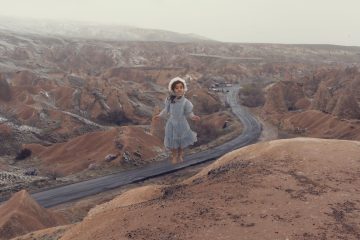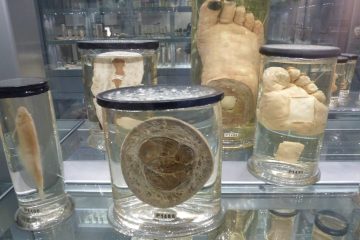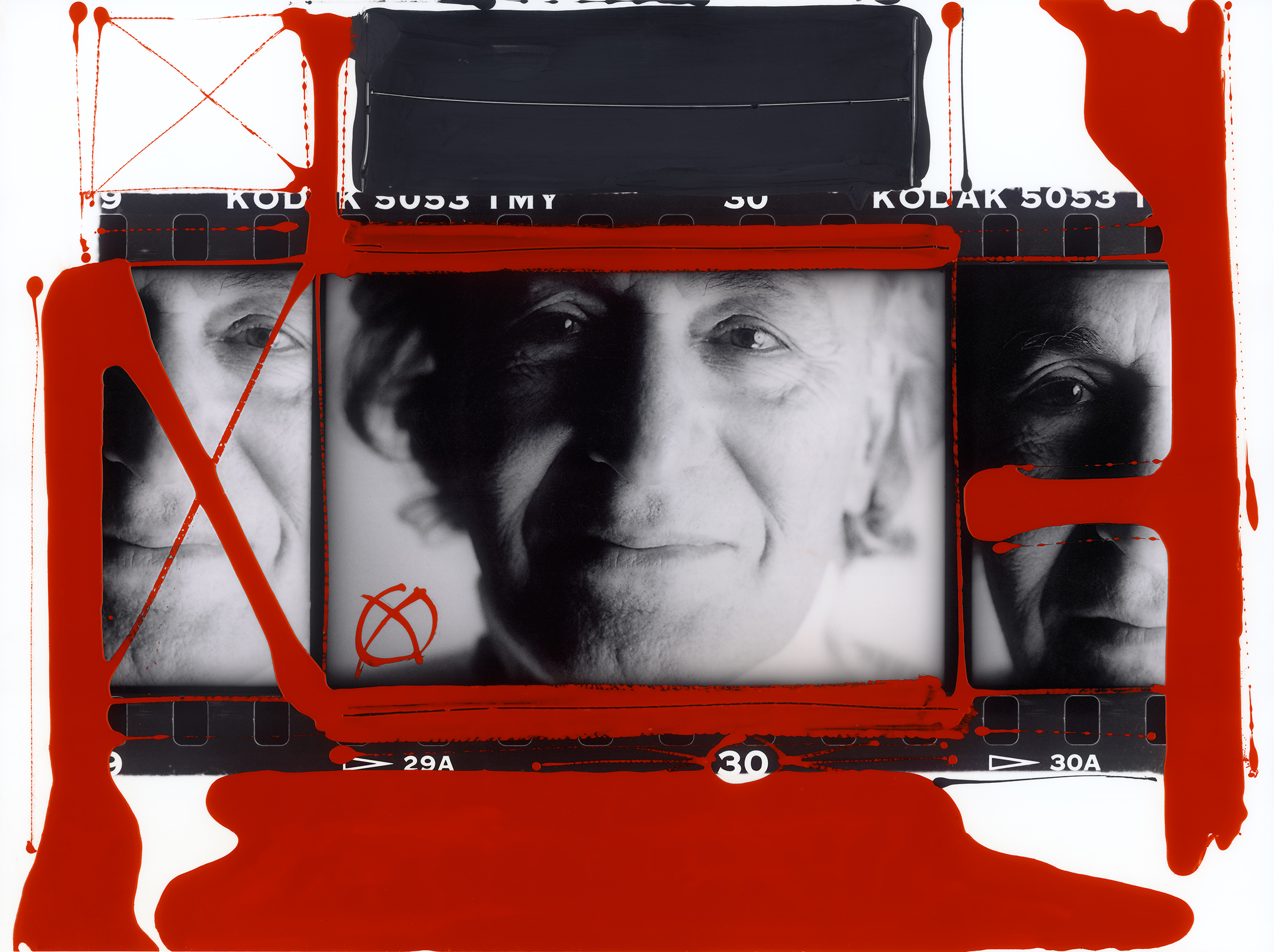
William Klein is celebrated as one of the 20th centuries most influential artists, with a six-decade-plus career spanning contributions to street and fashion photography, celebrity portraiture, documentary film, abstract art and bookmaking.
Showing little interest in traditional composition, Klein set himself apart as a revolutionary photographer, achieving fame for bold fashion shoots set outside traditional studio backdrops and inventive street photoessays featuring off-centre subjects, sometimes out of focus, who’s eyes were often fixed on his lens.
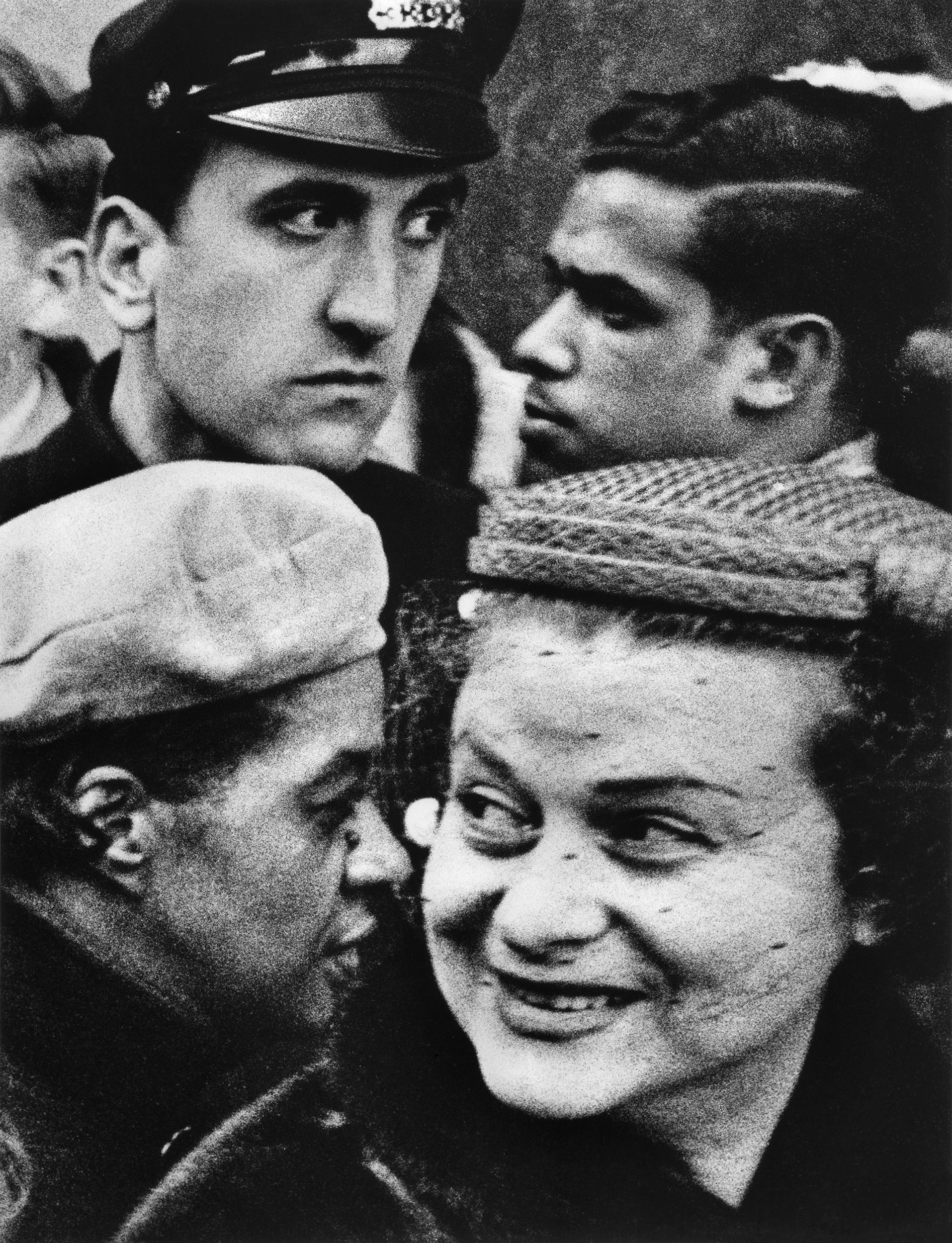
Gun 1, Broadway & 103rd Street, New York, 1954
Klein’s death on September 10th fell on the final day of his retrospective exhibit in his hometown at New York’s International Center of Photography.
Remembered as one of the fathers of modern photography, a man who followed his own rules, Klein’s raw, blurred photos often faced criticism for their vulgarity and supposed sinfulness to the sacred tradition of photography.
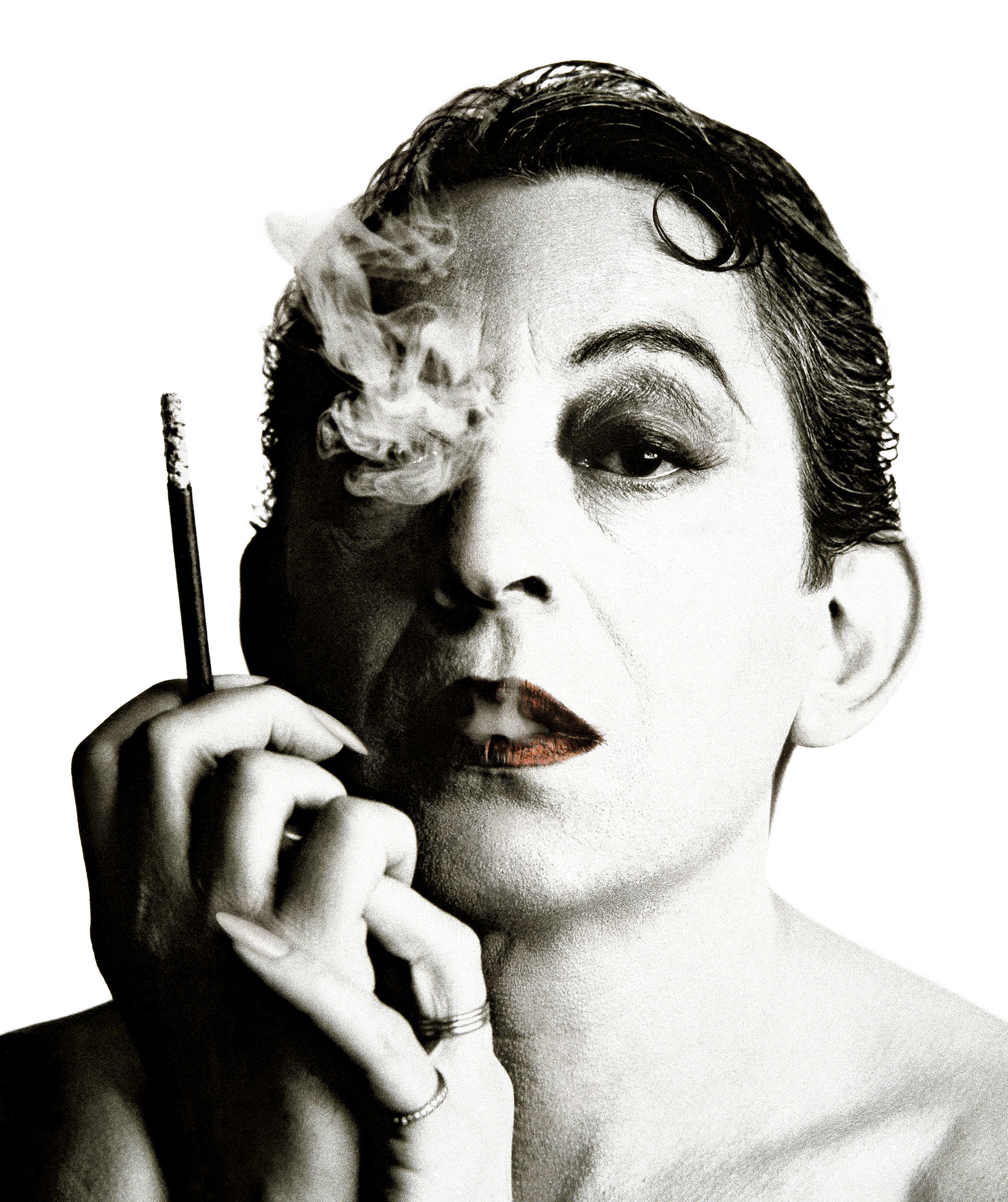
Serge Gainsbourg pour la pochette de l’album « Love On The Beat », Paris, 1984
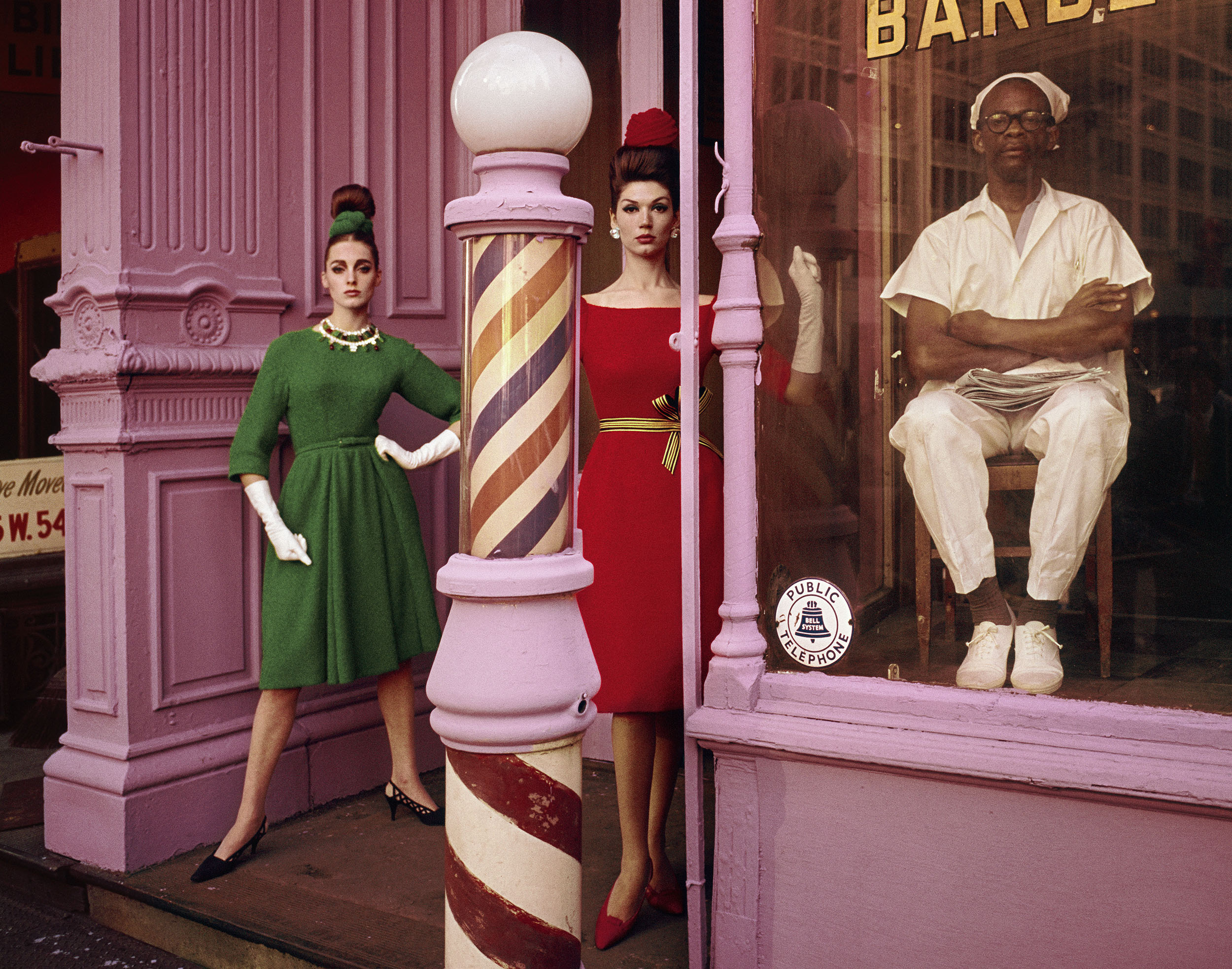
4 Heads, Macy’s Thanksgiving Parade, New York, 1954
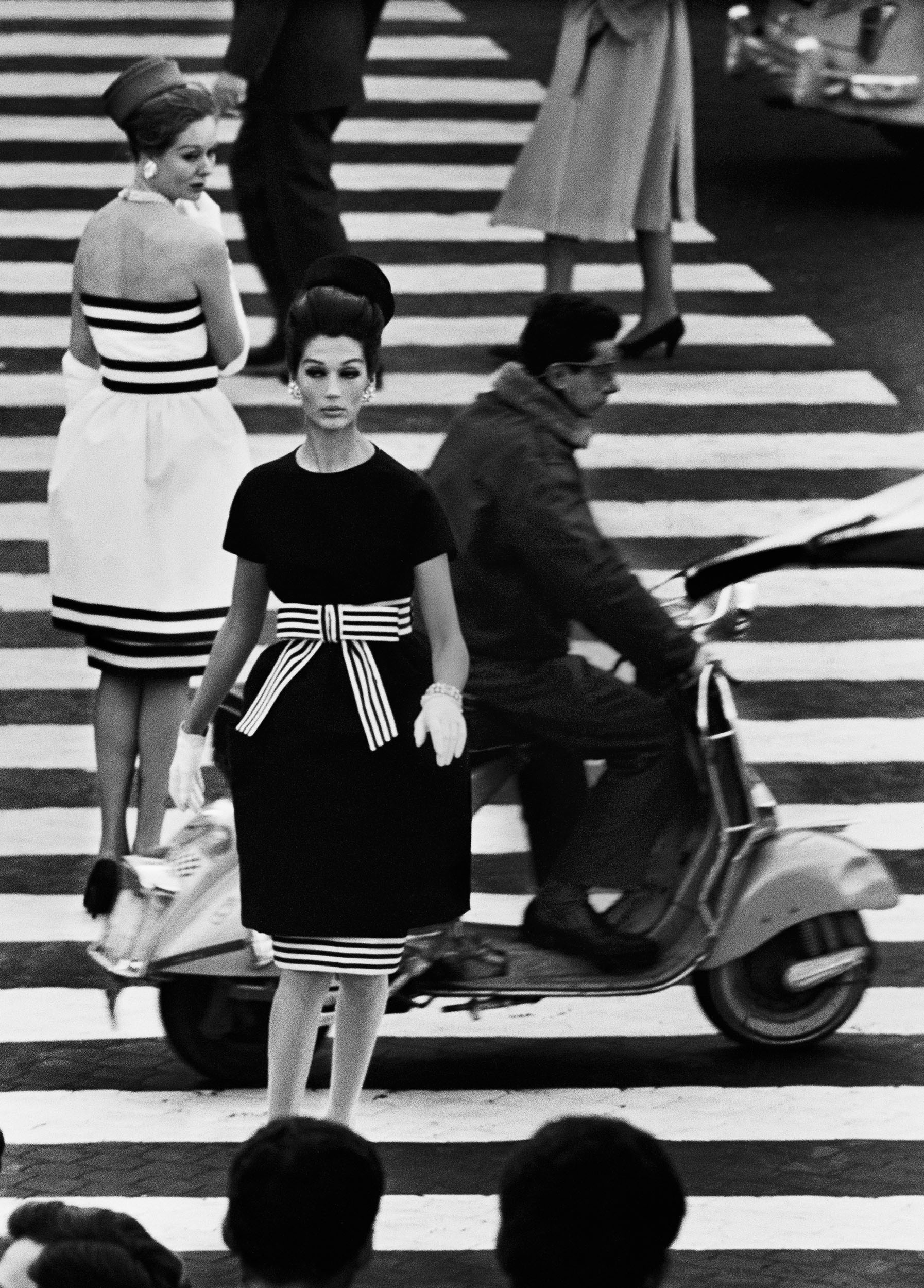
Nina + Simone, Piazza di Spagna, Rome, 1960 (Vogue)
His photobooks, however, gained international fame in the early 1960s, depicting raw, urban life in cities including New York, Paris, Tokyo, Moscow and Rome.
Born into a New York ultra-Orthodox Jewish family in 1926, Klein longed to travel Europe. He joined the US army during the Second World War, stationed first in Germany and next in France, where he permanently relocated.
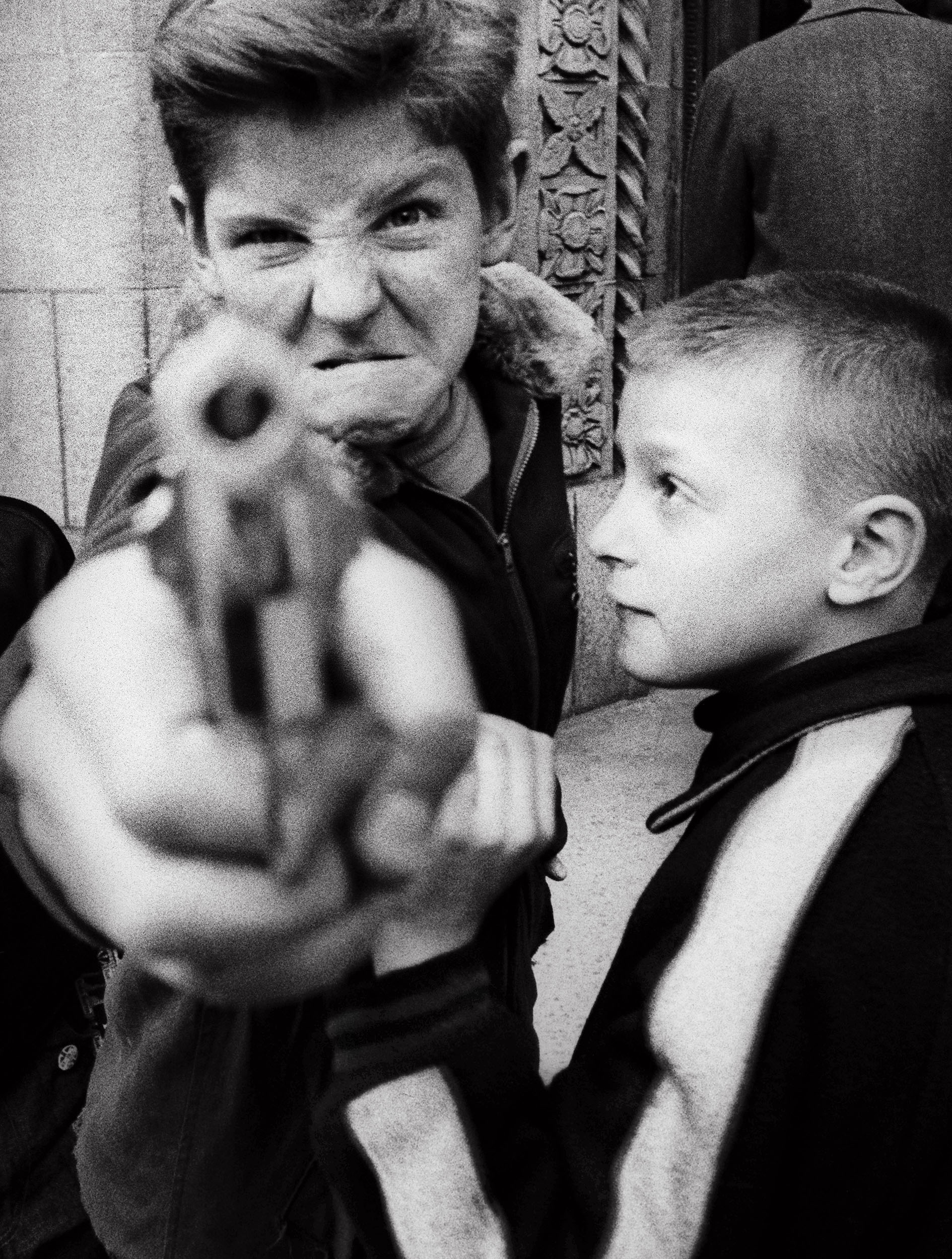
Antonia + Simone, Barbershop, New York, 1962 (Vogue)
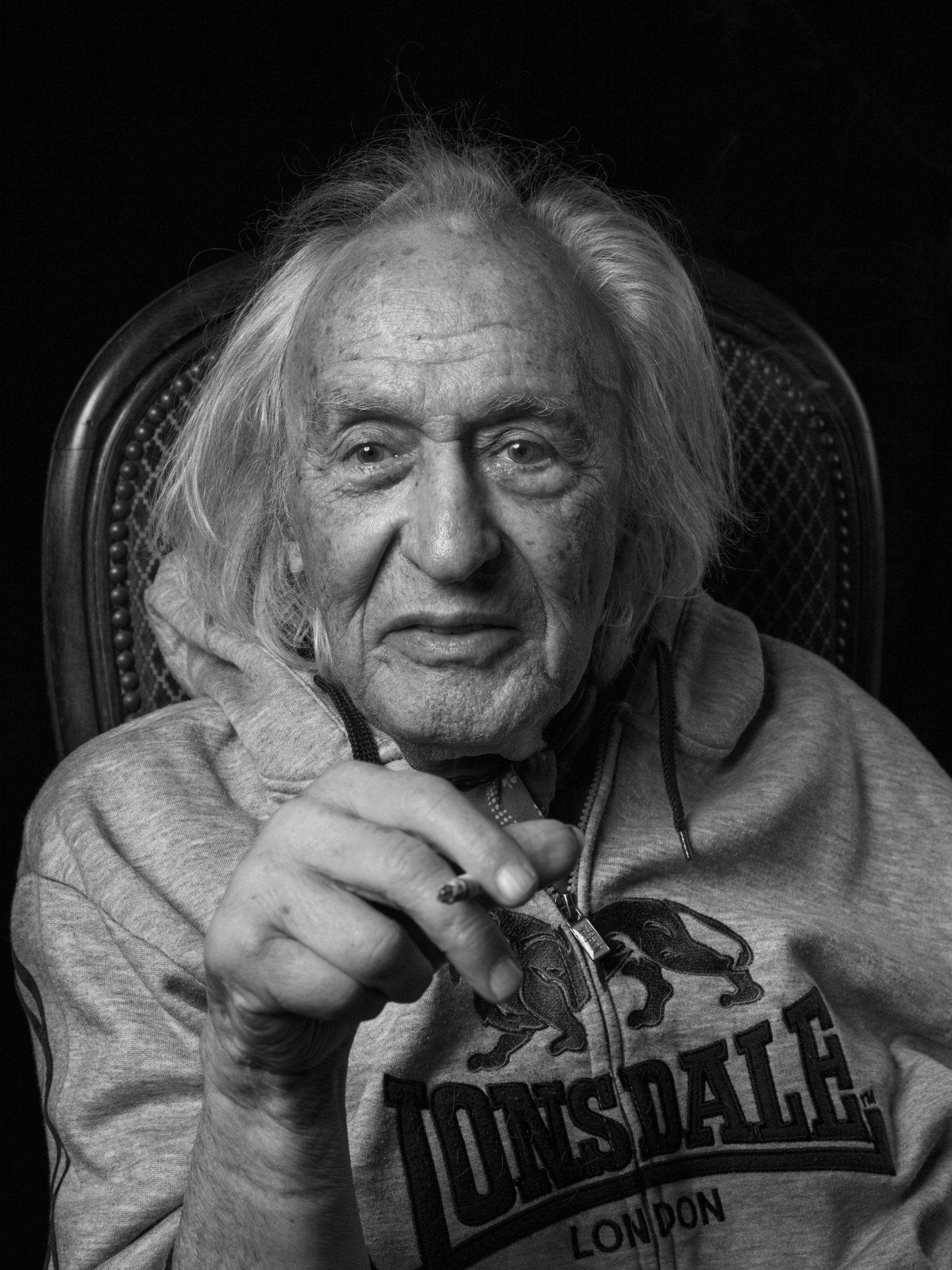
William Klein – © Zhong Weixing, Paris, 2016
Here he met his wife, Jeanna Florin, at the age of 18. They remained together for over 50 years until her death in 2005.
Asked if he felt French, Klein said he did not. “But I’m at home with the French,” he said. “Hanging out with Americans: for me, that sucks.”

